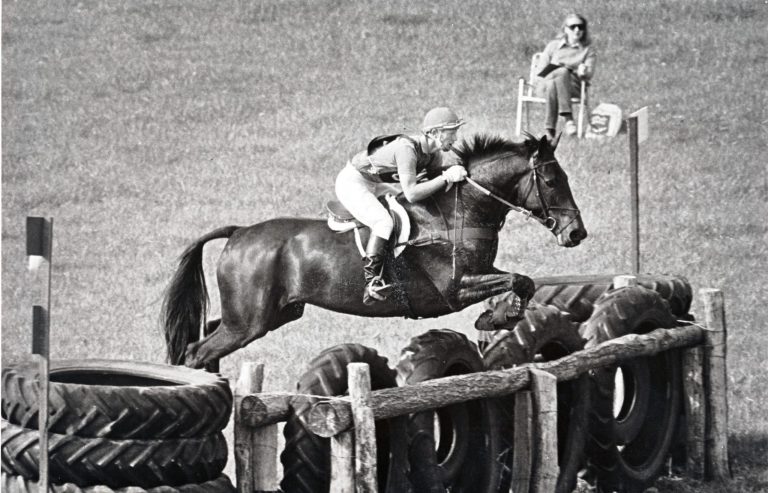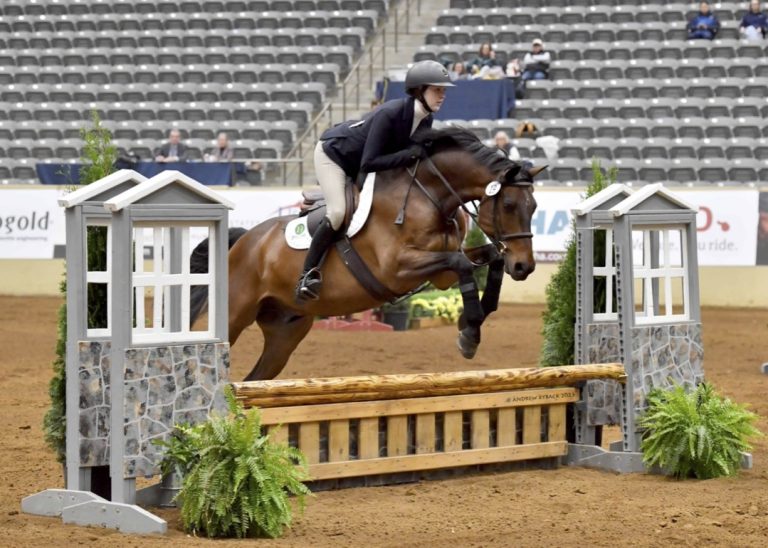Practical Horseman Associate Editor Jocelyn Pierce will be competing in the Mongol Derby, a 600-mile expedition considered the longest and toughest horse race in the world, in August. As she prepares, she’s reporting on her progress with weekly blogs here, www.JPMongolDerby.com and in Tips & Talk in Practical Horseman.
It was raining, it was cold and it was after the cut-off time for riding when Erik Cooper got the SOS call from a rider in the Mongol Derby. She was less than ¼ of a mile from the horse station, had gotten lost and was stuck on a high ridge. “We didn’t reach her until about 11 p.m. [2 hours later] because it was dark and we had to move at such a slow pace going up,” recalls Erik. “When we got to her, she was pretty hypothermic and a little shaken.” The team got the rider into the jeep, but they couldn’t just leave her horse there. So Erik jumped on the horse and slowly made his way down to the camp. “We got everyone back safe and sound around 2 a.m. or so,” Erik said.

“If it’s a medical emergency, the riders will press 911 and the medics will be dispatched, but if they press SOS, it just means they need some sort of assistance,” Erik explained. This is where he comes in. He heads the aptly-named “Bloodwagon,” and performs search and rescue missions for riders in need of help during the Mongol Derby. When the distress calls come in, Erik never knows what sort of disaster he’s about to walk into. “This is what we live for, these rescue missions,” he said.
A 2012 Mongol Derby veteran, Erik is spending his sixth summer in Mongolia this year. In addition to being part of the Mongol Derby race management, he also leads his own expeditions in Mongolia with the Tsaatans, the last tribe on the planet that ride reindeer. “There’s only 44 families left. Pretty rare,” Erik said.
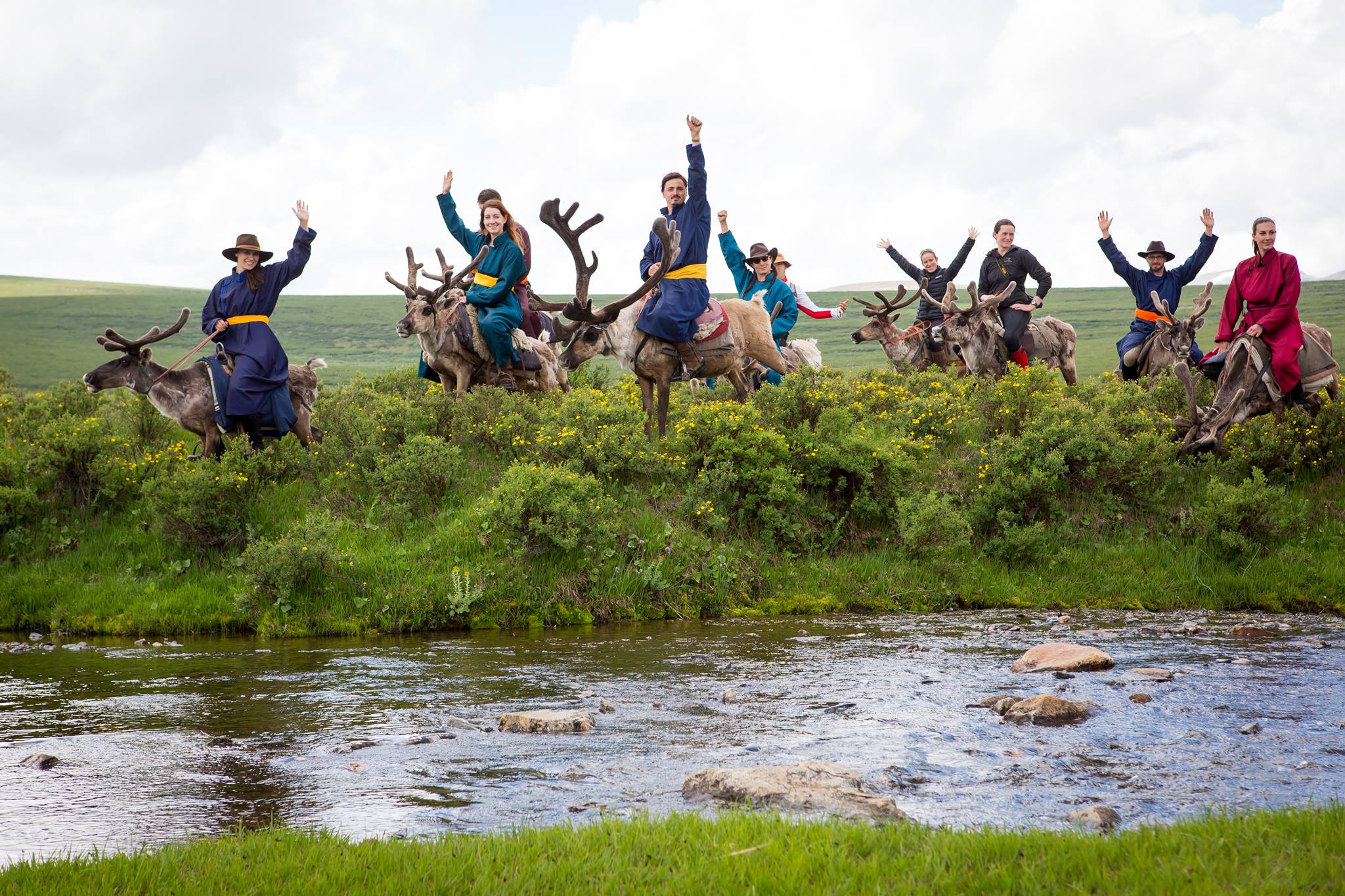
I have Erik to thank for my spot in the Mongol Derby, as he interviewed and selected me to ride in the race. In preparation for my upcoming Mongol Derby adventure, I caught up with him and asked him about his experience and for some advice.
JP: Why did you decide to compete in the Mongol Derby?
EC: I was looking for something to motivate me to get in shape. I thought I’d do something like a Tough Mudder [a 10–12 mile obstacle-course race], but then I stumbled upon the Mongol Derby. I grew up on a horse farm in Missouri and I thought I could handle myself, and what better way to test that than by competing the longest and toughest horse race on the planet?
JP: What was your main goal going into the Derby?
EC: I think everyone wants to win it, but you don’t know what the hell you’re getting yourself into until you’re over there. All of us have maybe one thing we do instinctually really well, but maybe we’re too afraid of failing at that one thing we’re so passionate about. So we keep living in this safe zone with it because we never want to push past that and be told we aren’t good at what we love to do. My whole goal was I just wanted to prove to myself that I was as good as I thought I was. I wanted to just to throw it all on the line and see what happened.
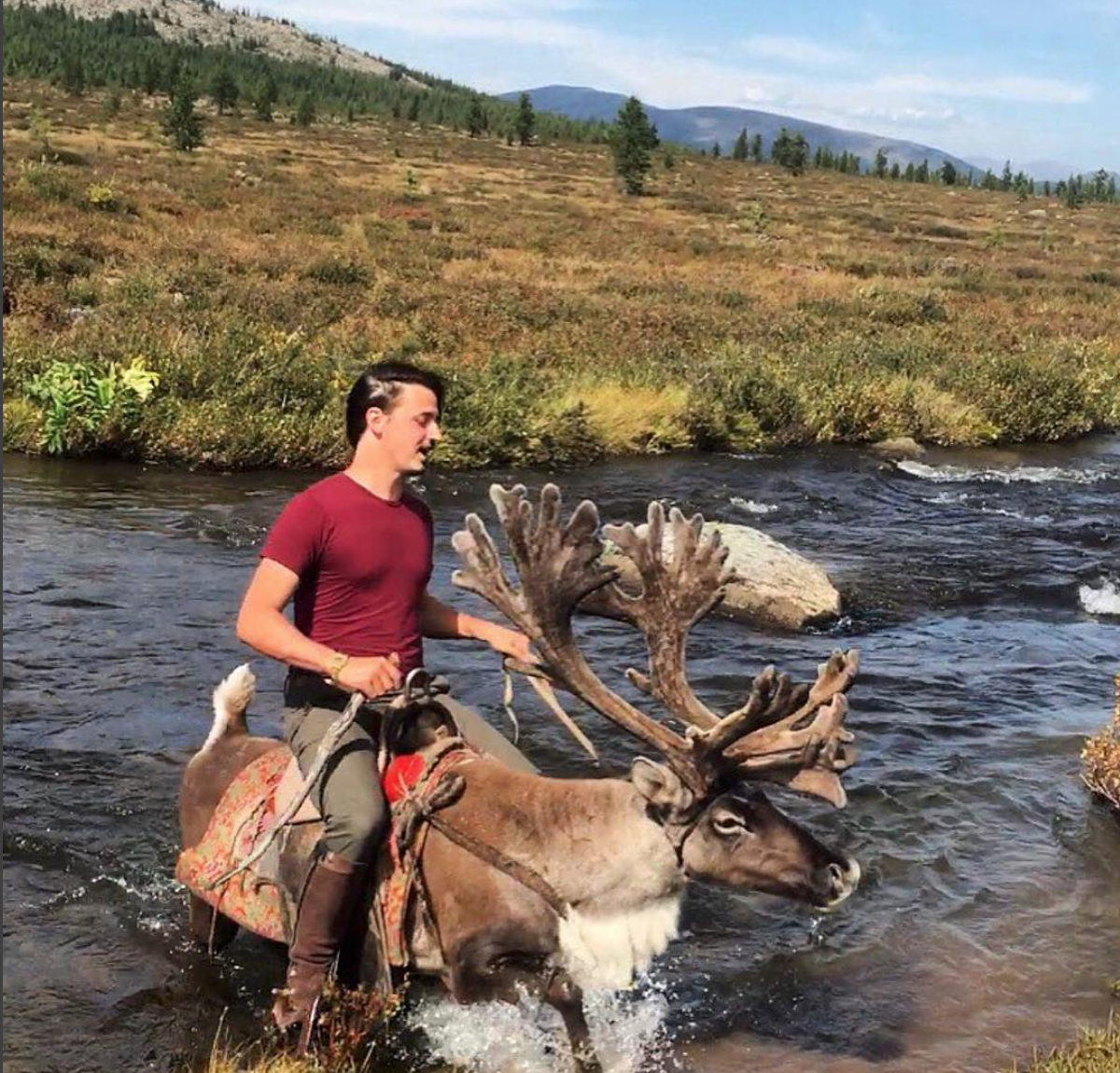
JP: What was the biggest surprise about the Derby?
EC: There was one day when I was cold, wet and miserable, and I thought it’ll be fine, because there would be a fire [at the horse station]. That’s what I think of when I think of camping. But there are no trees and so [the Mongolians] burn horse poop as fuel and it doesn’t last too long. I realized I was going to sleep cold and wet and that’s just how it is. I also didn’t realize there are so many wild dogs that are trying to bite you over there. Literally every day you’re pretty much chased by wild dogs.
JP: So you would recommend I get the rabies vaccine?
EC: Yeahhh. Ya know, either that—or just be fast.
JP: What was one of the craziest moments of your race?
EC: My year was the year that the rider broke his neck, and I was there when it happened. It’s kind of crazy because you sign up for this race and kind of sign your life away. It takes forever for the SOS team to find [riders]. You are in the middle of Mongolia, you are in the wild. So seeing this dude laying there with the broken neck—it became real. When you see it first-hand it’s a game changer and you realize that could be you. It’s not that the person can’t ride. It’s just that the rider was unlucky. Unlucky shit happens.
JP: What was one of the most inspiring moments or something that has stuck with you?
EC: The people of Mongolia. We are complete strangers. We look weird as hell riding up to their homes. They’re just so generous of what they have, even if they don’t have much and they are so hospitable. In what other place in the world do you see strangers taking in strangers, regardless of race or where they come from? In Mongolia they just take care of you. Now I live there every summer and I get to experience the generosity and hospitality and it’s just incredible. Riding the horses was amazing and so was being in the beautiful scenery—but the people really made it.
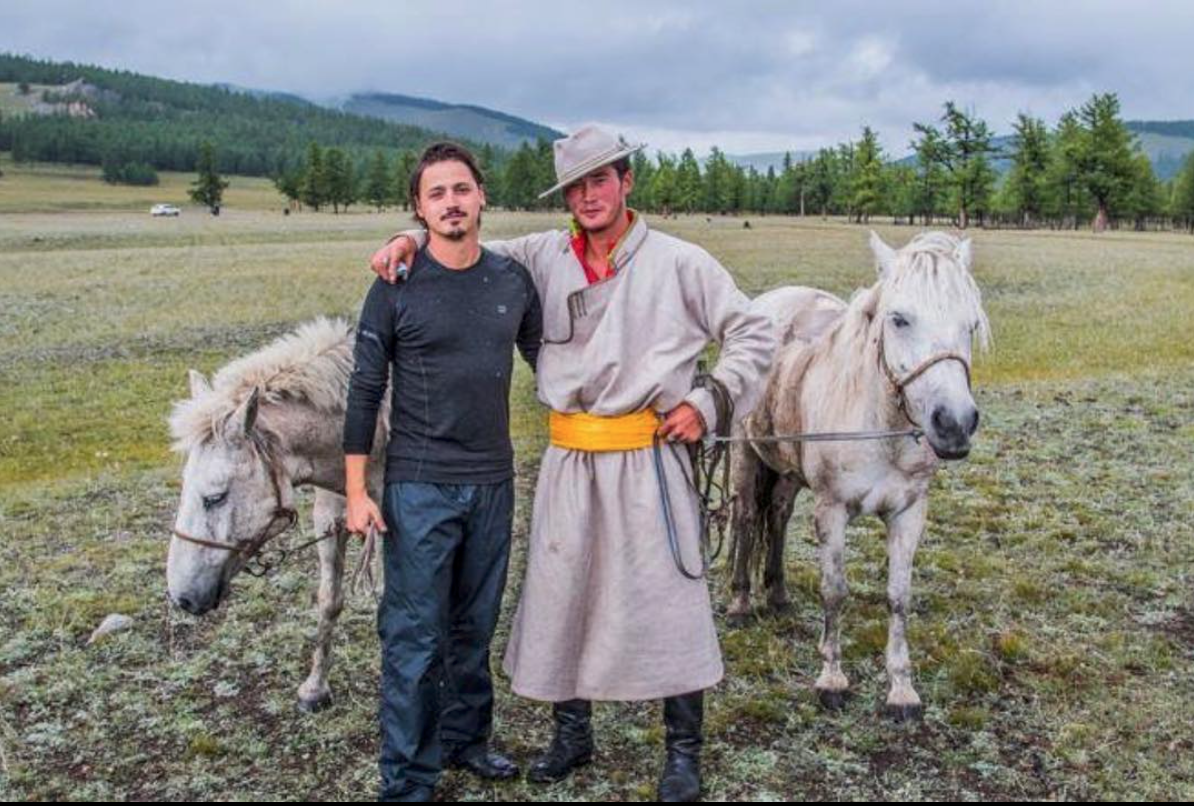
JP: Do you consider the Derby more of a mental or physical challenge?
EC: It’s a combination of both. It will take its toll on you physically, but I think the biggest thing about it is that the human body is able to adapt to certain things, more than what you think. If you’re physically fit and you’ve been riding your ass off, yeah you’re still going to be sore, you’re still going to be tired. But mentally, it can wear on you especially if you’re getting lost all the time and you start letting that get to you. If you start letting yourself get dark-sided, you’ve got to find the light. Mental fortitude and the power of positivity is important. You have to make light out of situations. Try to find humor in everything that happens.
JP: How did you train for the race?
EC: I was living in California riding endurance horses out in the desert, and then I moved back to the East Coast and trained on polo ponies. Then I moved to Missouri and finished training on my own horses back at my parents’ place. The biggest thing is to train on as many different personalities as possible. I think you get more out of riding a variety of horses because that’s what’s really going to give you that power to adapt. You’re riding 28 horses in Mongolia. Each one has his own personality, his own tick. Once you get to Mongolia and you’re on those horses, you can find each one’s match with a horse you trained on at home.
JP: Do you think it’s possible to build a relationship with the horse in such a short amount of time?
EC: (Laughs). You need to connect and understand that individual, I’ll say that (laughs). I don’t know how close of a bond you can build. The biggest takeaway from racing a horse in Mongolia is don’t control him too much. This is his home, he knows what he’s doing. I think we micromanage way too many things [in the U.S.] and we don’t let the horses have their own head and lead the way. Sometimes you just have to let go. Sometimes the horses are going to want to bolt. You think you can control that horse? You can’t. Let it go and just hope that you’re bolting in the right direction.
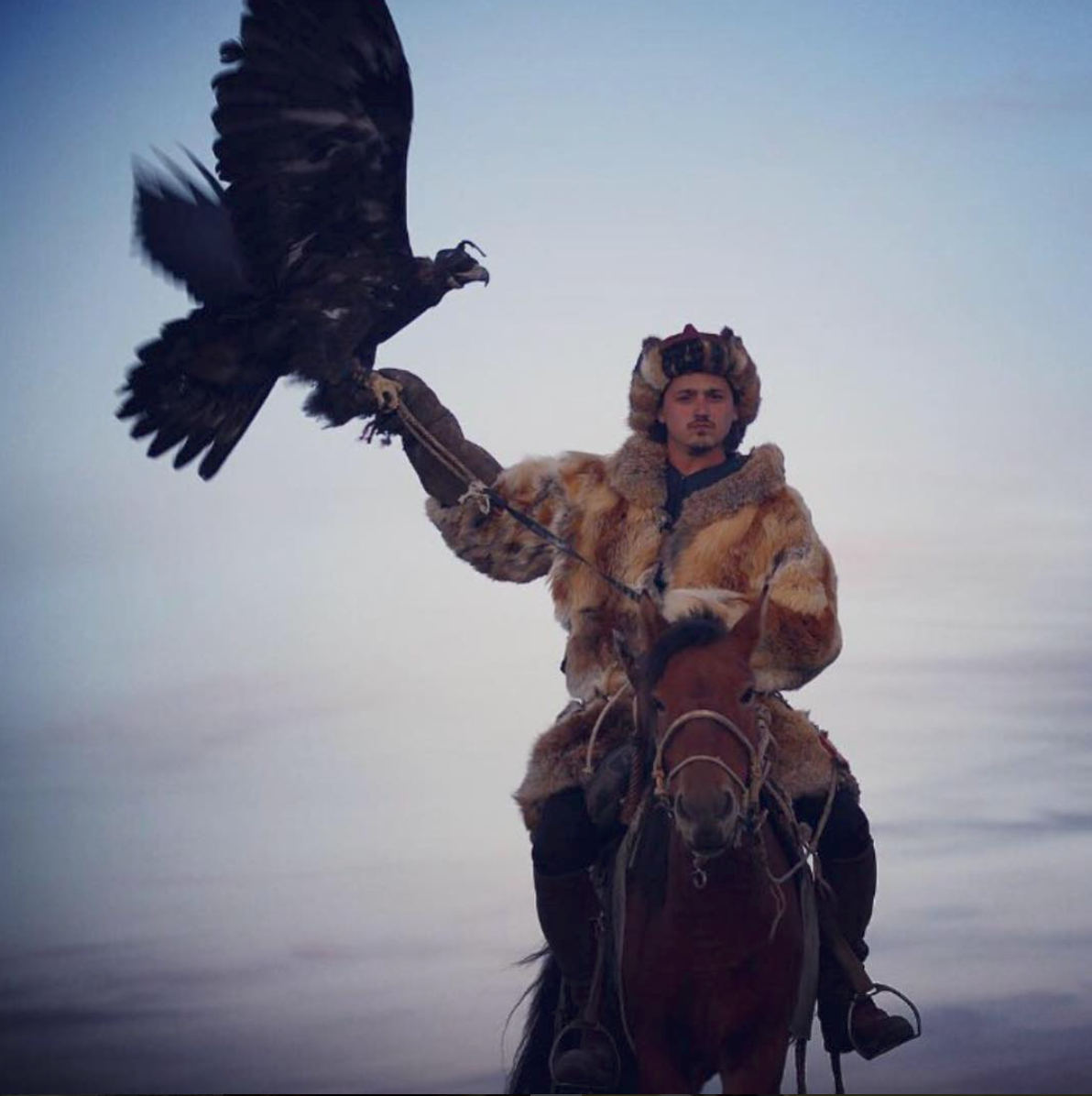
JP: Do you have any tips on selecting horses?
EC: Look at the terrain that you’ll be crossing next and pick a horse based on that kind of terrain. If you’re going to be in a lot of hills or mountains, pick a horse that looks a little more steadfast and looks like he has some fuel in the tank. If you have flat ground, pick that horse that looks like a speed racer. But then again, it could just be that that horse’s body looks amazing but he decides, ‘I’m not running today.’ And he won’t. So sometimes it’s a crapshoot.

JP: Was there anything in your kit that you brought and wish you hadn’t?
EC: Fruit snacks. I was like ‘Oh this will be great, I’ll ration these.’ I ate them all by Day 2. Don’t bring those comforts of home. A small roll of duct tape is amazing, obviously some painkillers, anti-chafe cream, a solid rain jacket. If you’re white as hell, sunblock.
Less is more. You don’t need it. Also, the horses are hyper-sensitive. Think about your gear in respect to the noise it makes, the color and brightness. Does your jacket have a lot of Velcro on it? Don’t bring it!
JP: Any parting words of wisdom?
EC: The biggest thing is having a positive attitude. You should have one moment in your Derby that you want to give up and you want to drop out. And in the moment, that’s going to be where you grow. When you persevere through that and you rally yourself and you get through—that’s going to be the game changer.
Keep up with Erik’s adventures and beyond by following him on Instagram at @ErikCooperAdventurist
Practical Horseman Associate Editor Jocelyn Pierce is competing in the Mongol Derby, a 600-mile expedition considered the longest and toughest horse race in the world, Aug. 8-27. Here’s how to follow the action, sponsored by Mane ‘n Tail and SmartPak:
• Visit Practical Horseman for daily race recaps and Jocelyn updates from 2017 Derby finisher Leslie Wylie
• Follow Jocelyn’s progress live via her GPS tracker, read official reports via the Derby website, and follow @mongolderbylive on Twitter
• Tune in for Derby Dot Watch Party podcasts presented by Horse Radio Network in partnership with Practical Horseman, broadcast live nightly at 8 p.m. EST







